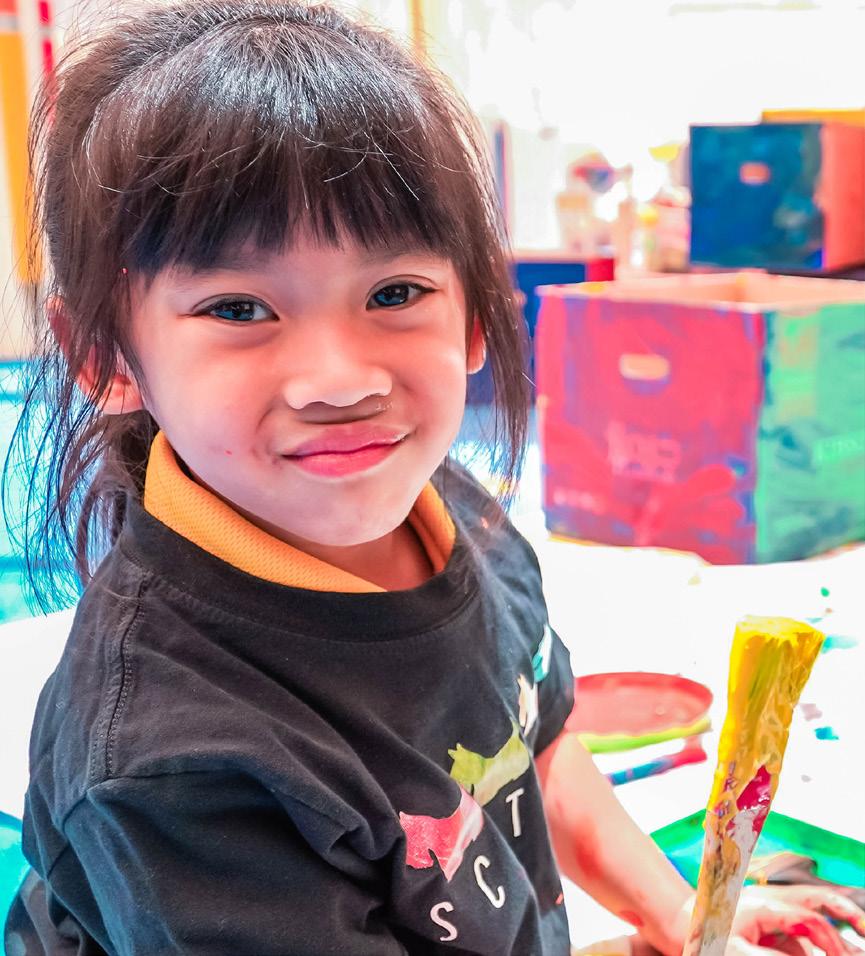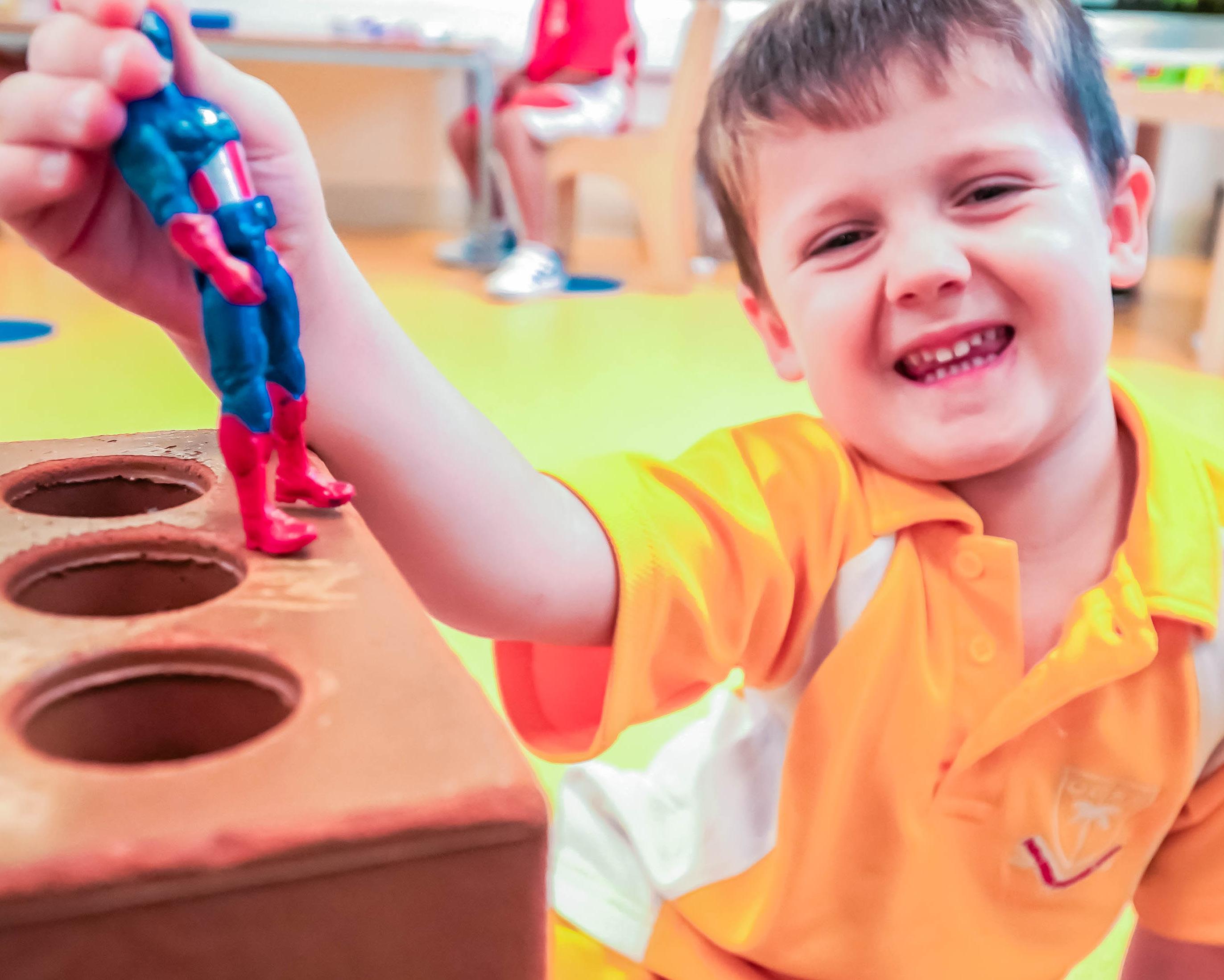
3 minute read
Keynote: The Importance of Play
THE IMPORTANCE OF PLAY
Yvonne Sewnauth | Phase Leader Foundation Stage, DESS
Advertisement
“Can I go play now?” As a parent, how many times have you heard your child ask this? Several, I am sure, and that is due to the simple fact that play is fundamental to a child’s development and is indeed, as Maria Montessori famously quoted, “the work of the child”. But what exactly is play? In ‘Learning Through Play’, Peter K Smith and Anthony Pellegrini describe it as “an activity done for its own sake, characterised by means rather than ends (the process is more important than any endpoint or goal)” (Smith and Pellegrini, 2013:2)
By engaging in active and play-based learning, our youngest students here at DESS are experiencing a whole range of skills that enable them to make sense of the world around them, as well as opportunities to experience setbacks and failures, which, in turn, allows them to develop problem-solving skills, emotional resilience, confidence and self-esteem. Play also teaches
“them ‘how’ to be a learner; during free-play sessions, children’s brains are filled with new information, thus they become completely engrossed in an activity. At this point, they Playful behaviour are processing everything that they have experienced and figuring out has extremely how it can work for their lives. powerful and Not only is play essential to positive effects cognitive, physical, social and emotional wellbeing of children, it on the brain.
also assists in laying the foundations for Literacy, as they learn to explore new sounds, attempt new vocabulary and exercise their imagination through storytelling. Learning through play is more than simply learning academic skills, such as letters and numbers, indeed, it is providing our children with life-long skills essential for the 21st Century: collaboration, communication, critical thinking and creativity. Prior to the 1960s, the brain was considered by scientists and medical professionals as unmalleable, thus resulting in a fixed intelligence. However, Marion Cleeves Diamond, one of the founders of modern neuroscience who studied the brain of Albert Einstein, also conducted a landmark research experiment in 1964. Studying rats in boring, solitary confinement versus those in an exciting, play-filled environment, Diamond uncovered that the ‘enriched’ rats had thicker cerebral cortices (bigger brains!). In addition, these rats were smarter and more able to navigate their way through mazes quickly too. With 90% of a child’s brain developing before the age of five, it is vital that children have ample opportunities for free play to enable their pre-frontal cortex (the brain’s executive control centre responsible for regulating emotions, allowing decision making and problem solving) to enlarge and operate at a faster rate. Interestingly, and on a side note, the pre-frontal cortex also grows with love, and when children feel praised and celebrated, they in turn are developing larger brains too. This research by Diamond provided resounding evidence that playful behaviour has extremely powerful and positive effects on the brain. So powerful, in fact, that the amount of play a child does has a direct correlation to their ability to learn. Whilst the brain grows with free play, the pre-frontal cortex can actually shrink and diminish with

“Learning through play is more than simply learning academic skills... it is providing our children with life-long skills essential for the 21st Century.
screen-time, and children can often present with sensory overload, lack of restorative sleep and a hyperaroused nervous system (electronic screen syndrome). Thus, by limiting a child’s exposure to screens, for example, television or iPads, you are allowing them to be less impulsive, present with a sunnier mood, as well as have greater focus and attention skills. With the new EYFS curriculum and the Birth to 5 Matters document coming into effect from September 2021, education policy makers are pinning the importance of getting it right for every child from day one – a vision that has always been our main priority here at DESS; whether that be in Foundation Stage 1 or 2 or indeed if your child joins us in later years. Play remains deeply rooted in our philosophy, whereby we provide our youngest children with high quality, planned play experiences to support their learning, that is both enjoyable and challenging. By recognising that learning is at its highest level when children are at play and allowing their imaginations to create their own objectives, not only are we allowing them to develop healthier brains, but we are laying the foundation for skills that are so vital for later in life.
So the next time, when your child asks, “Can I go play now?”, I hope you’ll know what to say!










